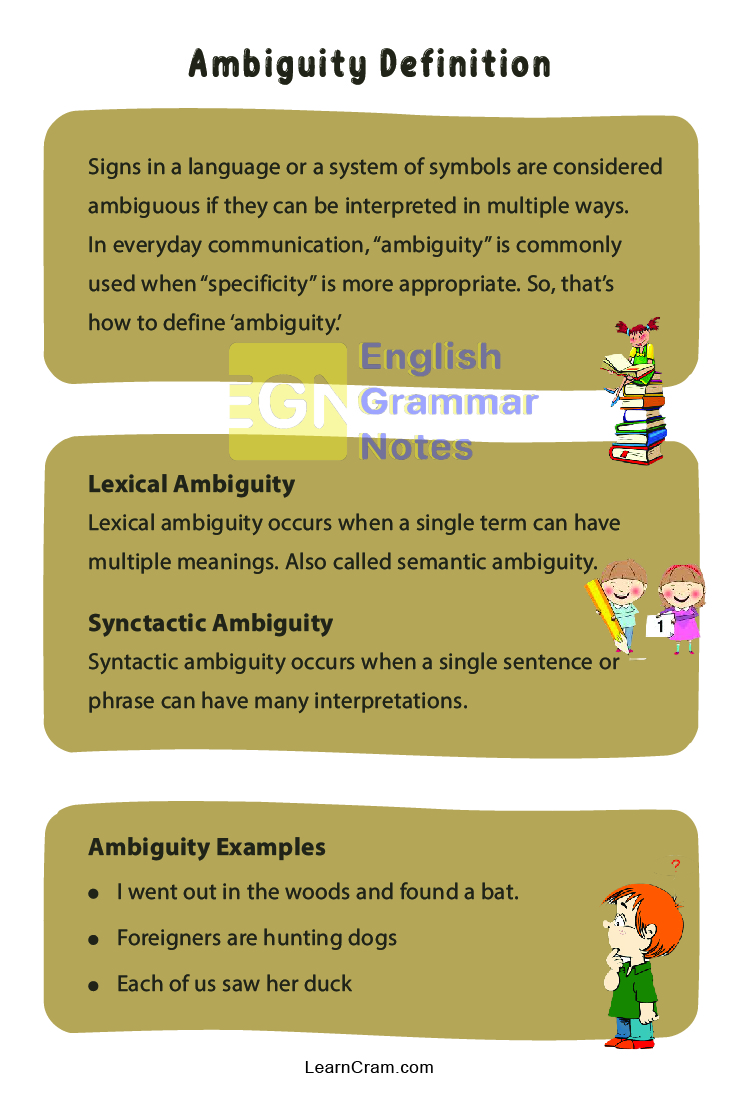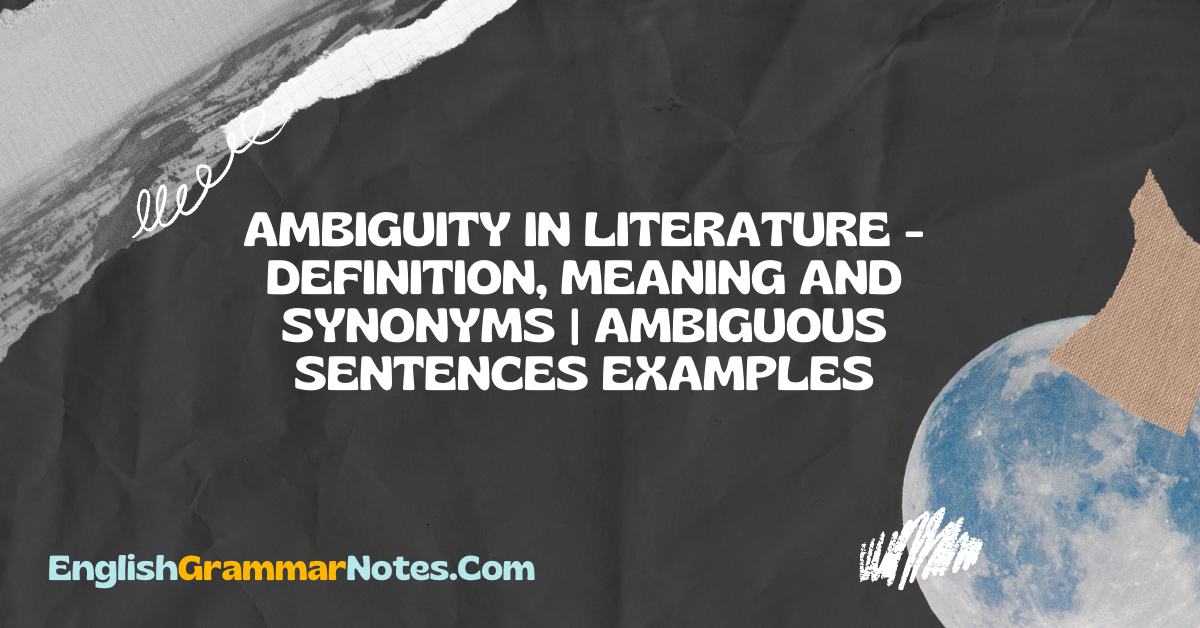When a term, statement, or resolution does not have a single clear meaning but can be interpreted differently, we say that it is ambiguous. Uncertainty is a regular feature of ambiguity. It is a feature of any concept or statement, the meaning of which cannot be determined by a finite rule or method. (The prefix Ambi- suggests that there are two, or alternative, interpretations, as in the case of this phrase.)
Contrasting ambiguity with vagueness is a common way to define it. When there is ambiguity, multiple, diverse interpretations are possible (even if some aren’t immediately clear), but when there isn’t, it’s more challenging to arrive at a single, satisfactory one. In the following text, we would like to expand upon the meaning of this word.
Explore all other literary devices similar to this as well by visiting our page and resolve all your doubts if any.
Ambiguity Definition & Meaning
Signs in a language or a system of symbols are considered ambiguous if they can be interpreted in multiple ways. In everyday communication, “ambiguity” is commonly used when “specificity” is more appropriate. So, that’s how to define ‘ambiguity.’
Types of Ambiguity
It is important to note that ambiguity in speech and writing goes beyond a lack of clarity. It’s something with a bit more of a narrow emphasis. There are many types of ambiguity, each characterized by the presence of two or more potential interpretations of a given word or paragraph. The Latin origin of the word ambiguity means “wandering about.”
Both oral and written communication, are the common types that exist. They consist of the following:
⦁ Lexical ambiguity
⦁ Syntactic ambiguity
Lexical Ambiguity
Lexical ambiguity occurs when a single term can have multiple meanings. Also called semantic ambiguity. Puns and other creative uses of language provide enough examples.
Synctactic Ambiguity
Syntactic ambiguity occurs when a single sentence or phrase can have many interpretations. Structured ambiguity is another name for this. When faced with grammatical uncertainty, it’s best to look to the surrounding text for hints about the intended meaning.
Fallacy
The use of ambiguity verges on the use of the fallacy as a rhetorical tactic. When someone makes what seems to be a logical mistake, they are committing an error. Perhaps the main character in your next piece is trying to figure out why they (or someone else) made a wrong decision. A logical fallacy can be the cornerstone of an excellent discussion. Equivocation, in which the same term is employed in different contexts, is similar to these two terms.
Ambiguity Synonyms
Darkness, ambiguity, equivocation, inscrutability, murkiness, mysteriousness, nebulosity, nebulousness, opacity, opaqueness, oblique, obliquity, obscurity, and opacity are all synonyms for ambiguity.
Ambiguity Examples
⦁ I went out into the woods and found a bat.
⦁ Foreigners are hunting dogs
⦁ The end . . . ?
⦁ “How do you make a turtle fast? Take away his food bowl.”
⦁ Each of us saw her duck
⦁ The passerby helped the dog bite victim

Read More:
FAQs on Ambiguity
1. What is the meaning of Ambiguity?
Words and statements that aren’t clearly defined might cause misunderstandings and perhaps lead to some hilarious miscommunications. Saying something like, “I rode a black horse in red pyjamas,” is ambiguous since it could be interpreted as meaning either that the horse was wearing pyjamas or that the rider was.
2. Can you give some instances of ambiguity?
⦁ The bark hurt. (This could refer to the roughness of a tree’s bark or the anguish conveyed through a dog’s bark).
⦁ You’re expected to bring alcoholic beverages and sweets. You may be expected to get only wine, wine, beer, and dessert.
⦁ Harry is skipping the get-together.
3. How is a sentence’s ambiguity is defined?
If a single sentence or group of words can be understood in more than one way, it is said to be ambiguous. This can throw off the reader’s comprehension and cause the statement’s meaning to be muddled.
Conclusion
The word or phrase that can be interpreted in more than one way is ambiguous. The Latin root of the word implies “wandering about”; however the meaning of the adjective version of the word is up for grabs. Amphibologia, amphibolia, and semantic ambiguity are all alternative names for ambiguity. In addition, equivocation, the error of using a term in more than one manner, is sometimes mistaken for ambiguity. We appreciate your time and hope you found this post on Ambiguity interesting.
